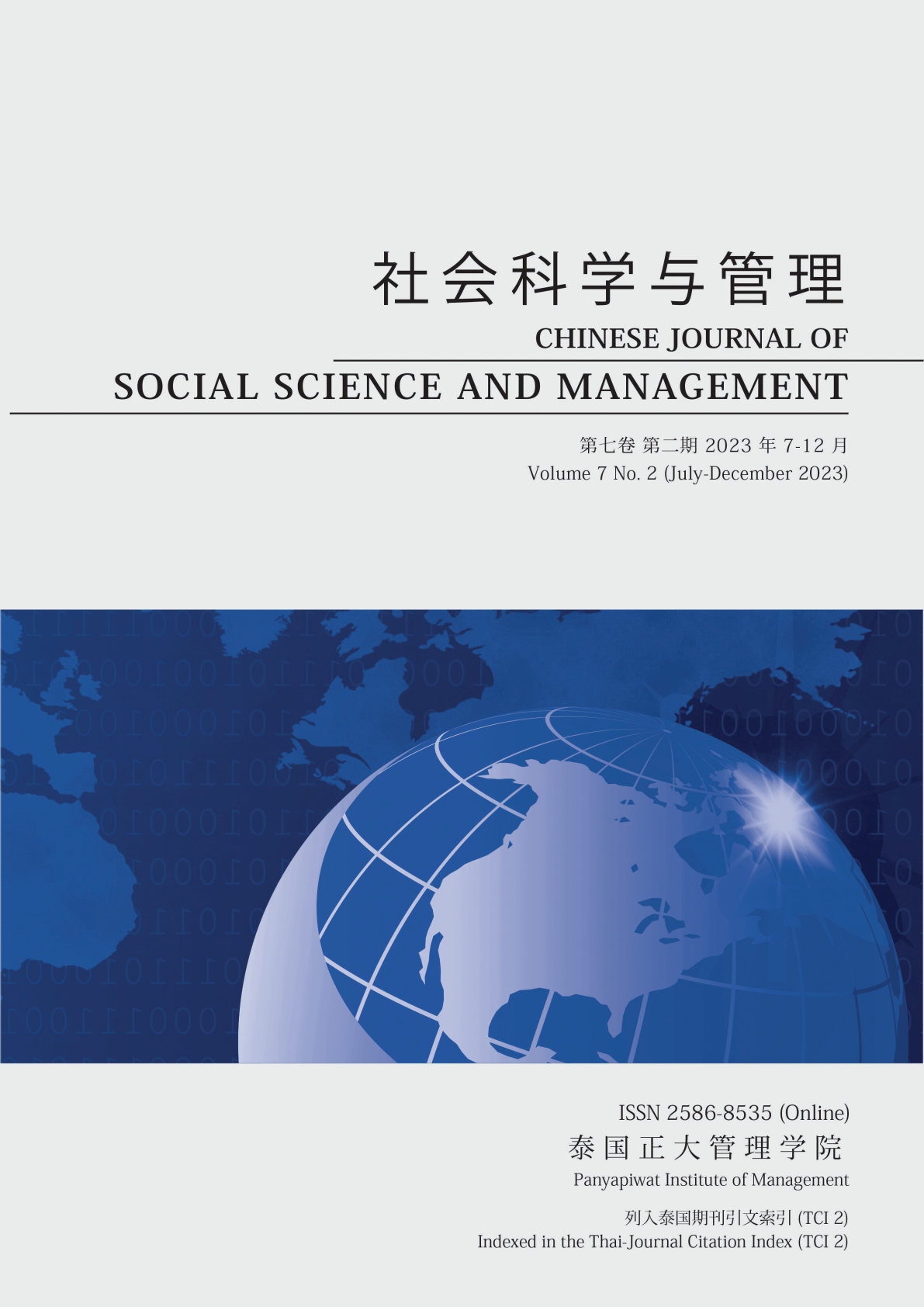THE IMPACT OF CHINESE E-COMMERCE CORPORATE SOCIAL RESPONSIBILITY ON CONSUMERS’ PURCHASING INTENTION—THE MEDIATING ROLE OF MOTIVATIONAL ATTRIBUTION
Main Article Content
Abstract
In the context of the booming digital economy, the rapid flow of information has caused significant changes in the marketing situation, so attention should be paid to the research conducted on customer psychology and behavior from the traditional business environment to the e-commerce situation. The relationship between e-commerce enterprises’ social responsibility and consumers’ purchase intention is an issue worth focusing on. However, at present, the research on CSR in the context of e-commerce is incomplete, especially from the perspective of the consumers.
Based on the review and summary of the relevant literature at home and abroad, in this paper, a theoretical research model of the internal mechanism of e-commerce corporate social responsibility on consumers’ purchase intention based on the intermediary role of motivational attribution was constructed. In this empirical study, the sample data were collected through a questionnaire survey, and then the structural equation modeling and other data were analyzed. The following conclusions were drawn: First, e-commerce CSR has a positive impact on consumers’ purchase intention. Second, motivational attribution plays a partially mediating role in the relationship between e-commerce CSR and consumers’ purchase intention. Specifically, when consumers attribute the motivation of e-commerce enterprises’ CSR performance to social benefits rather than their own interests, e-commerce enterprises’ CSR has an indirect positive impact on consumers’ purchase intention through motivational attribution. This study enriches the research on the corporate social responsibility impact mechanism of the related theory and extends the boundary of the e-commerce situation with regard to consumer psychology and behavior research. This can facilitate the development of e-commerce enterprise social responsibility strategies to provide theoretical guidance, on the one hand, to promote e-commerce enterprises to actively fulfill the social responsibility and promote their active response to the consumers, while on the other hand, promoting the sustainable development of enterprises and society in the e-commerce environment.
Article Details

This work is licensed under a Creative Commons Attribution-NonCommercial-NoDerivatives 4.0 International License.
Chinese Journal of Social Science and Management Editorial Division
The Office of Research and Development, Panyapiwat Institute of Management
85/1 Moo 2, Chaengwattana Rd., Bang Talat, Pakkred, Nonthaburi 11120, Thailand
Tel. 02 855 01048 E-mail: cjssm@pim.ac.th
References
Bhattacharya, C. B., & Sen, S. (2003). Consumer-company identification: A framework for understanding consumers’ relationships with companies. Journal of Marketing, 67(2), 76-88.
Bhattacharya, C. B., & Sen, S. (2004). Doing better at doing good: When, why, and how consumers respond to corporate social initiatives. California Management Review, 47(1), 9-24.
Bowen, H. R. (1953). Social responsibilities of the businessman. Harper & Row.
Carroll, A. B. (1979). A three-dimensional conceptual model of corporate performance. Academy of Management Review, 4(4), 497-505.
Davis, K. (1960). Can business afford to ignore social responsibilities? California Management Review, 2(3), 70-76.
Deng, X. M., Zhang, T., Xu, Y., & Long, X. Y. (2016). A study of influence of the csr on consumers’ purchase intention. Chinese Journal of Management, 13(7), 1019-1027.
Handelman, J. M., & Arnold, S. J. (1999). The rold of marketing actions with a social dimension: Appeals to the institutional environment. Journal of Marketing, 63, 33-48.
Jin, L. Y. (2006). An empirical study on the evaluation index system of corporate social responsibility movement from the perspective of consumers. China Industrial Economy, 6, 114-120.
Ma, L. L. (2011). Research on the influence mechanism of corporate social responsibility on Consumers’ purchase intention. Journal of Management World, 5, 120-126.
Maignan, I., & Ferrell, O. C. (2004). Corporate social responsibility and marketing: An integrative framework. Journal of the Academy of Marketing Science, 32(1), 3-19.
Mohr, L. A., Deborah, J. W., & Katherine, E. H. (2001). Do consumers expect companies to be socially responsible? The impact of corporate social responsibility on buying behavior. Journal of Consumer Affairs, 35(1), 45-72.
Murray, K. B., & Vogel, C. M. (1997). Using a hierarchy of effects approach to gauge the effectiveness of CSR to generate goodwill towards the firm: Financial versus nonfinancial impacts. Journal of Business Research, 38(2), 121-159.
Sen, S., & Bhattacharya, C. B. (2001). Does doing good always lead to doing better? Consumer reactions to corporate social responsibility. Journal of Marketing Research, 38(2), 225-243.
Wen, Z. L., & Ye, B. J. (2014). Mediating effects analysis: Method and model development. Advances in Psychological Science, 22(5), 731-745.
Wu, M. L. (2010). Practice of questionnaire statistical analysis-operation and application. Publishing House Chongqing University.
Xie, P. H., & Zhou, Z. C. (2009). Empirical study on the relationship between CSR and consumers’ purchasing intention in the context of China. Nankai Business Review, 12(1), 64-83.
Zeithaml, V. A., Berry, L. L., & Parasuraman, A. (1996). The behavioral consequences of service quality. Journal of Marketing, 60(2), 31-46.


